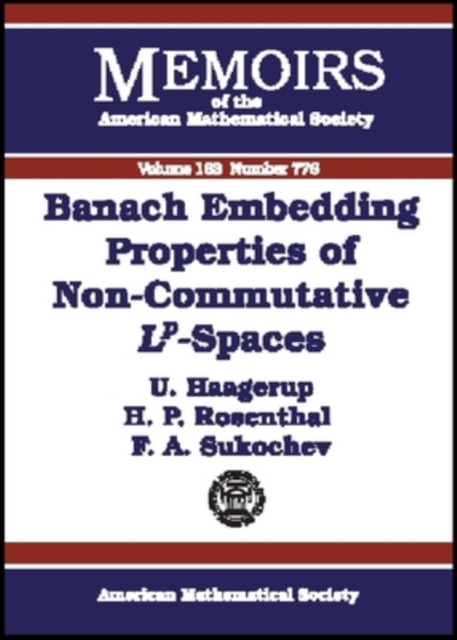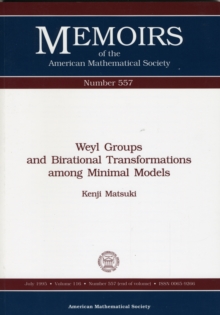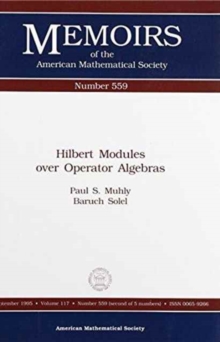
Banach Embedding Properties of Non-commutative L-p Spaces Paperback / softback
Part of the Memoirs of the American Mathematical Society series
Paperback / softback
Description
Let $\mathcal N$ and $\mathcal M$ be von Neumann algebras.
It is proved that $L^p(\mathcal N)$ does not linearly topologically embed in $L^p(\mathcal M)$ for $\mathcal N$ infinite, $\mathcal M$ finite, $1\le p<2$.
The following considerably stronger result is obtained (which implies this, since the Schatten $p$-class $C_p$ embeds in $L^p(\mathcal N)$ for $\mathcal N$ infinite).
Theorem. Let $1\le p<2$ and let $X$ be a Banach space with a spanning set $(x_{ij})$ so that for some $C\ge 1$, (i) any row or column is $C$-equivalent to the usual $\ell^2$-basis, (ii) $(x_{i_k,j_k})$ is $C$-equivalent to the usual $\ell^p$-basis, for any $i_1\le i_2 \le\cdots$ and $j_1\le j_2\le \cdots$.
Then $X$ is not isomorphic to a subspace of $L^p(\mathcal M)$, for $\mathcal M$ finite.Complements on the Banach space structure of non-commutative $L^p$-spaces are obtained, such as the $p$-Banach-Saks property and characterizations of subspaces of $L^p(\mathcal M)$ containing $\ell^p$ isomorphically.
The spaces $L^p(\mathcal N)$ are classified up to Banach isomorphism (i.e., linear homeomorphism), for $\mathcal N$ infinite-dimensional, hyperfinite and semifinite, $1\le p<\infty$, $p\ne 2$.
It is proved that there are exactly thirteen isomorphism types; the corresponding embedding properties are determined for $p<2$ via an eight level Hasse diagram.
It is also proved for all $1\le p<\infty$ that $L^p(\mathcal N)$ is completely isomorphic to $L^p(\mathcal M)$ if $\mathcal N$ and $\mathcal M$ are the algebras associated to free groups, or if $\mathcal N$ and $\mathcal M$ are injective factors of type III$_\lambda$ and III$_{\lambda'}$ for $0<\lambda$, $\lambda'\le 1$.
Information
-
Out of Stock - We are unable to provide an estimated availability date for this product
- Format:Paperback / softback
- Pages:bibliography
- Publisher:American Mathematical Society
- Publication Date:30/03/2003
- Category:
- ISBN:9780821832714
Other Formats
- PDF from £46.80
Information
-
Out of Stock - We are unable to provide an estimated availability date for this product
- Format:Paperback / softback
- Pages:bibliography
- Publisher:American Mathematical Society
- Publication Date:30/03/2003
- Category:
- ISBN:9780821832714









